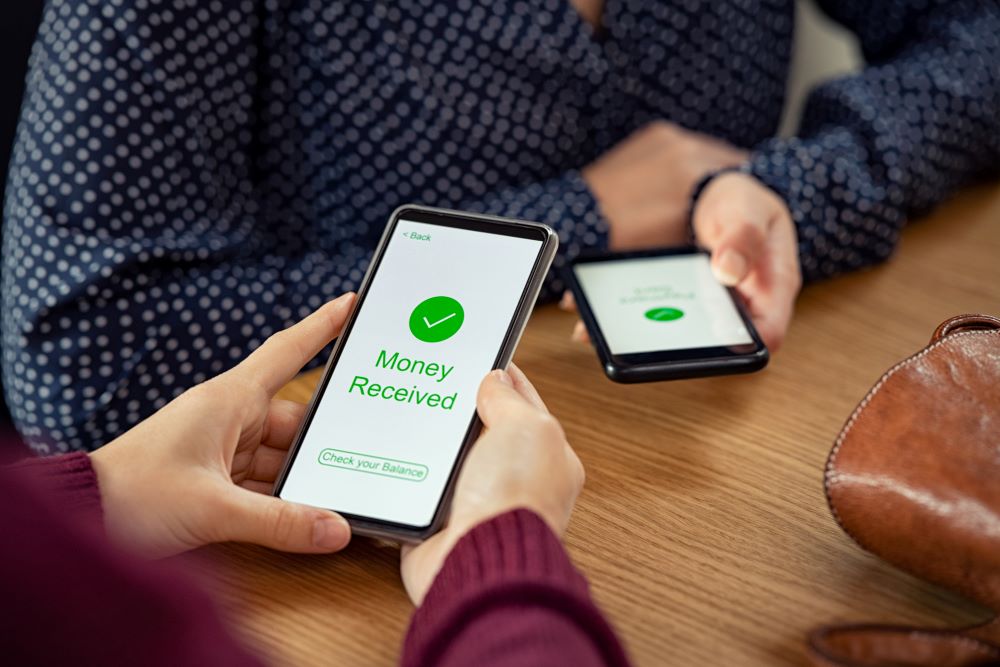Paying a friend back is easier than ever now. With the rise of money transfer apps such as Venmo and PayPal, sending money from one place to another is quite literally as easy as clicking a button. For this reason, money transfer apps have quickly gained traction as one of the most convenient methods of transferring money.
According to a recent survey by payment industry adviser Mercator Advisory Group, mobile transfer apps are used by 70% of Americans. However, some people are wary of using such apps for fear of it affecting their good credit score. But how much of this claim is true?
Read on to find out more about money transfer apps and how they impact your credit score.
What Are Money Transfer Apps?
Money transfer apps, also known as Peer-To-Peer (P2P) apps, are mobile applications that allow users to transfer money to other individuals through fast and secure channels. Some of the most common money transfer apps include:
- Venmo
- PayPal
- Zelle
- WorldRemit
- Cash App
- Facebook Pay
Money transfer apps have some basic differences, such as different features, levels of speed, different pricing points, the ability to do international transfers, and varying user interfaces. However, they all serve the primary purpose of providing a secure network for transferring funds.
Such applications are popular among Americans because they not only allow instant and hassle-free fund transfers, but they can also link to your bank accounts and credit and debit cards through a digital wallet.
Do Money Exchanges Appear on Your Credit Report?
Your credit report is an important tool that banks, investors, landlords, and even some employers use to measure your credit handling capabilities. This report provides individuals with all the information they need to assess their financial condition and habits. It includes your personal information, public records, credit inquiries, and a history of your credit account.
As you can most likely tell, keeping a good clean credit report is imperative as it can affect all aspects of your life. This is why numerous people using money transfer apps wonder if exchanging money shows up on their credit reports.
To understand this, it is important to know what your checking account is. A checking account is a bank deposit account used by individuals to deposit and withdraw money. You can use a checking account at any time to make unlimited withdrawals and deposits.
Although your checking account is an essential part of your everyday finances, its regular use for normal activities such as making deposits, withdrawing money and making transfers to other accounts is not shown on the credit report.
However, frequently overdrawing your checking account can show up on your credit report. This is because, most of the time, your credit report only deals with any money you have borrowed either presently or in the past.
Do Money Transfer Apps Affect Your Credit Score?
Your credit score is a numerical score calculated through your credit report by credit bureaus through certain specific algorithms. Anything that shows up on your credit report is most likely to affect your credit score positively or negatively. For example, paying off your bills on time positively affects your credit score, which reflects your good financial behavior. In contrast, late payments can lower credit score and indicate that you have trouble handling your finances well.
Borrowing large sums of money, frequently maxing out your credit card and not paying bills and debts on time can all affect your credit score negatively. This in turn can affect your ability to get a loan, be approved to rent and even keep you from some job opportunities.
Money transfer apps, however, do not directly affect your credit score. This is because their normal use of transferring money to another account is not shown in the credit report.
Tips to Keeping a Good Credit Score
As mentioned earlier, it is important to keep a good credit score. You can consult credit monitoring services to actively monitor your credit score. Another good step is practicing good financial habits that go a long way in helping you maintain a good score.
Here are a few tips and tricks on helping maintain a good credit score:
- Always pay your bills in time
- Avoid amassing your credit card balance
- Ensure that your longest-running credit account remains open
- Make full payments where possible
- Monitor your credit report to ensure there are no errors and to keep an eye on your financial habits
- Avoid applying for new credit
Money Transfer apps are a fast and efficient way to transfer money between people. They are secure, easy to use and come with numerous features to make transferring money seamless.
However, many people worry that these apps may negatively affect their credit report and scores. Normal use of these apps does not affect your credit score, as transferring money does not directly affect your credit report.











